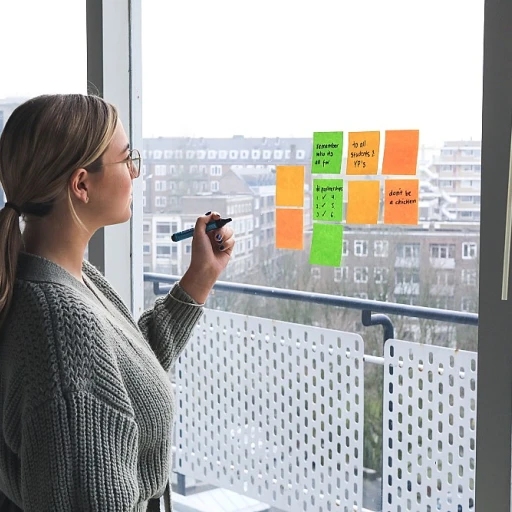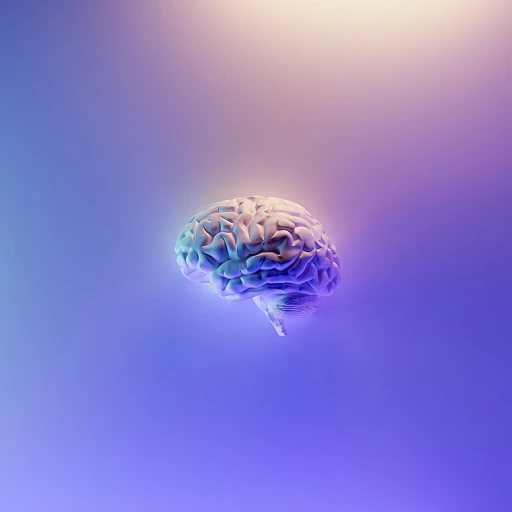
Defining Analytical Thinking and Critical Thinking
Clarifying Key Concepts
Analytical thinking and critical thinking are often discussed within professional circles, yet they are distinct in their methodologies and applications. Both skills are vital; however, understanding their differences is crucial for effectively addressing complex problems in the workplace.
Analytical Thinking: A Structured Process
Analytical thinking involves a structured approach to problem solving. It is centered around data analysis, breaking complex issues into manageable parts, and using logical reasoning to evaluate evidence. This thinking process focuses on understanding and interpreting data to make informed decisions. At its core, analytical thinking helps dissect problems systematically, using a methodical approach to derive solutions.
Critical Thinking: An Evaluative Approach
Conversely, critical thinking is about evaluating and reasoning, focusing on questioning assumptions and considering alternative perspectives. It involves breaking down arguments and examining the underlying evidence before forming conclusions. Critical thinkers are adept at scrutinizing the validity of different viewpoints, which is a crucial aspect of decision making in professional settings.
The Intersection of Analytical and Critical Thinking
While analytical skills are often quantitative, emphasizing models and numbers, critical thinking enriches problem solving with qualitative insights. These thinking skills are complementary, each enhancing the other. Bridging these skills can lead to more rounded and informed decisions in the workplace.
Exploring the dynamics of high and low skill dynamics in the workforce is essential to further illustrate the impact of these thinking skills on job roles and responsibilities. Mastering both analytical and critical thinking is integral to navigating complex professional environments efficiently.
The Role of Analytical Thinking in the Workplace
The Significance of Analytical Thinking in Work Environments
Analytical thinking plays a pivotal role in today’s dynamic workplaces. This skill involves breaking down complex problems and evaluating evidence to make informed decisions. Analytical thinkers utilize logical reasoning to systematically analyze data, transforming vast information into actionable insights. They approach problem solving by dissecting complex issues, making it easier to identify viable solutions. In professions where decision making is crucial, analytical skills are indispensable. For instance, industries that heavily rely on data analysis and evidence-based decisions, such as finance and healthcare, demand individuals who can navigate through data with precision. Analytical thinking helps in creating clear strategies that enhance efficiency and effectiveness, ultimately leading to improved organizational performance. Additionally, the process of analytical thinking aids in developing robust problem solving skills. It involves a thorough analysis that prevents knee-jerk reactions, fostering environments where decisions are made with consideration and foresight. By embracing an analytical approach, organizations can ensure that their solutions are not only reactive but proactive, addressing potential challenges before they arise. For those looking to refine their analytical thinking capabilities, a comprehensive skill survey provides key insights into understanding and bridging the skills gap. This allows individuals to better align their thinking skills with the demands of their roles, enhancing their overall contribution to their organizations.The Importance of Critical Thinking in Professional Settings
Significance of Critical Thinking in Professional Environments
In today's rapidly changing professional landscape, critical thinking has become increasingly crucial. It serves not only as a vital component of the problem-solving process but also enhances decision making by enabling individuals to evaluate data and evidence effectively. Critical thinking involves breaking down complex problems into smaller, more manageable parts. This approach aids in understanding issues from different perspectives, allowing for more informed decisions. Critical thinking helps professionals make sound judgments by fostering logical reasoning and thorough analysis of problems. In a business context, it involves assessing the credibility of information sources, identifying potential biases, and weighing various solutions before arriving at an informed decision. This evaluative process is essential when dealing with intricate and ambiguous tasks that require careful consideration. Analytical thinkers, on the other hand, tend to focus on data-driven solutions through systematic analysis. While both skills share some common ground, critical thinking emphasizes a broader evaluation beyond numerical data. It also requires evaluating the context and potential implications of decisions or solutions, making it an indispensable skill in creating strategies that align with an organization’s goals. Effective critical thinking in the workplace contributes to effective communication, collaboration, and innovation. It supports addressing challenges by encouraging alternative viewpoints and fostering a culture of continuous improvement. By understanding the definition of competency verification, professionals can better appreciate the role that critical thinking plays in competency development, ultimately bridging the skills gap and enhancing overall organizational performance. The evolving needs of the workforce underscore why both analytical and critical thinking skills are becoming increasingly important.Bridging the Skills Gap: Why Both Skills Matter
Integrating Analytical and Critical Thinking in the Workplace
In today's fast-paced work environment, the ability to effectively integrate both analytical and critical thinking skills is crucial for addressing complex problems. Analytical thinking involves breaking down complex problems into smaller, manageable parts, allowing for detailed analysis and logical reasoning. This process is essential for data-driven decision making, where evidence and analysis are key to informed decisions.
On the other hand, critical thinking involves evaluating information and arguments, questioning assumptions, and considering different perspectives. This thinking process helps in making decisions that are not only informed but also well-rounded and considerate of various factors.
The Synergy of Analytical and Critical Skills
When combined, analytical and critical thinking skills create a powerful approach to problem solving. Analytical thinkers excel at dissecting data and identifying patterns, while critical thinkers bring a broader perspective, questioning the status quo and exploring alternative solutions. This synergy is vital in tackling complex problems that require both detailed analysis and creative solutions.
Employers increasingly value professionals who can seamlessly blend these skills, as they contribute to more effective decision making and problem solving. By fostering an environment that encourages both analytical and critical thinking, organizations can bridge the skills gap and enhance their workforce's capability to adapt to evolving challenges.
Practical Steps to Develop These Skills
To bridge the skills gap, individuals and organizations can take practical steps to develop both analytical and critical thinking skills. Encouraging continuous learning, providing training opportunities, and promoting a culture of inquiry are effective strategies. By doing so, they not only enhance individual capabilities but also contribute to a more agile and resilient workforce.













